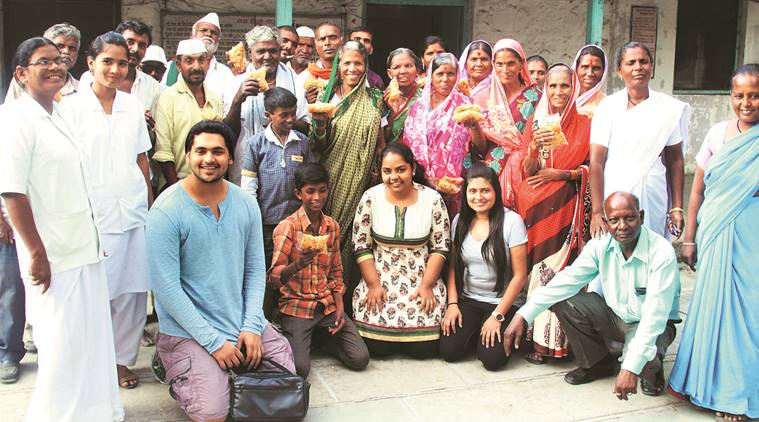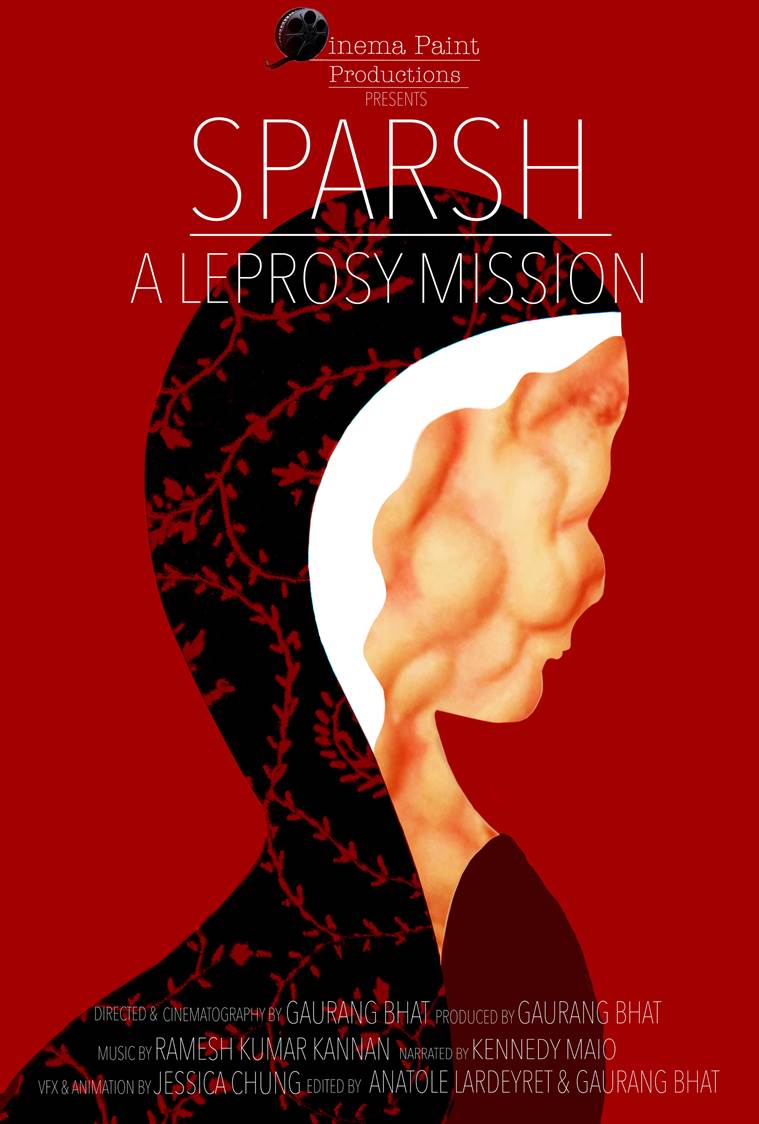The Healing Touch
A documentary highlights the stigma faced by people suffering from leprosy despite India being declared ‘leprosy free’ in 2005

Gaurang Bhat (left, in blue) focuses on how leprosy continues to be a challenge for India
Mahatma Gandhi had once said that “Leprosy work is not merely medical relief; it is transforming frustration of life into the joy of dedication, personal ambition into selfless service”. He had nursed leprosy patients and had a deep compassion for people suffering from the disease.
A new documentary titled Sparsh- A Leprosy Mission, by 25-year-old filmmaker Gaurang Bhat, focuses on how leprosy continues to be a challenge for India despite the country declaring itself ‘leprosy free’ in December 2005. This was called “elimination” of leprosy as national public health problem because there is less than one case per 10,000 people.
The film focuses on how this “false imagination” of the country, of being leprosy free, is creating more problems for people suffering from the disease, who face a social boycott. They are treated as untouchables and do not even have access to proper healthcare facilities despite the fact that leprosy is curable.
The film highlights how India confused itself between “partial elimination” of disease in 2005 and “complete eradication” due to which ‘hidden’ cases started getting reported. The country was declared leprosy free despite thousands of existing patients still suffering from it.
As per the annual report of the National Leprosy Eradication Programme (NLEP) for 2016-17, which is being run by the government, there were still 86,000 leprosy cases on record as on April 1, 2016. India still has more than half of world’s total leprosy patients (at least 57%), says another report released by the government in 2017.

Bhat highlights the problem in the state of Maharashtra where FJFM Hospital, which is being run by Vadala Mission, an NGO in Ahmednagar, is treating and performing surgeries on leprosy patients since many years now. These are led by Dr Ravi Prabhakar and Dr Sandhya Prabhakar. Even after the government declared the country leprosy free, they continued door-to-door survey to bring out “hidden patients”. “The most common stigma which continues to prevail among people is that leprosy spreads through touch. We met patients who were not allowed to drink water or have food in common utensils even by their own families. So it shows how a lot of work still needs to be done before India can actually call itself leprosy free,” says Bhat, who started working on the project in 2016.
One of the patients narrates how he was told to leave home by his mother after he was diagnosed with leprosy. “My own mother kicked me out along with my wife and two children. She believed that she, too, will get this ‘curse from God’ if we stay with them. My children are not allowed to play with other kids as people say that they will also get infected,” he says. “People even suggested that I give rat poison to my husband,” says the patient’s wife in the film.
Similarly, Dr Prabhakar narrates a case of a couple in the film. Both had leprosy and the woman was allegedly burnt to death by villagers. “The man, after the death of his wife shifted to our hospital for treatment with his two small children. But unable to bear the pain of his wife’s death and his own sufferings, he committed suicide. Since then our NGO has raised both the children,” says Prabhakar in the film.
Similarly, Dr Prabhakar narrates a case of a couple in the film. Both had leprosy and the woman was allegedly burnt to death by villagers. “The man, after the death of his wife shifted to our hospital for treatment with his two small children. But unable to bear the pain of his wife’s death and his own sufferings, he committed suicide. Since then our NGO has raised both the children,” says Prabhakar in the film.
A man talks about how a Brahmin in their village who got leprosy was asked to bite a snake to get cured. He went on to bite a snake but died because of the bite. Similarly, a young woman narrates that they have hidden her father’s leprosy from the entire village; else it would become impossible to find a groom for her. “People in Maharashtra still call it a ‘maharog’ which indicates that it is a curse of god. Not only are the patients isolated and socially boycotted, they face humiliation at every step because of deformities and bumps on their skin. There are separate ‘leprosy colonies’ where only people suffering from the disease live in isolation. Since these patients are not bedridden, they need to be made part of society by being given work and jobs to earn and granted social acceptance,” says Bhat.
The film which was completed in January this year was screened at Dada Saheb Phalke Film Festival 2018 and won the award for best screenplay at Lake City International Film Festival.
The film which was completed in January this year was screened at Dada Saheb Phalke Film Festival 2018 and won the award for best screenplay at Lake City International Film Festival.






















No hay comentarios:
Publicar un comentario